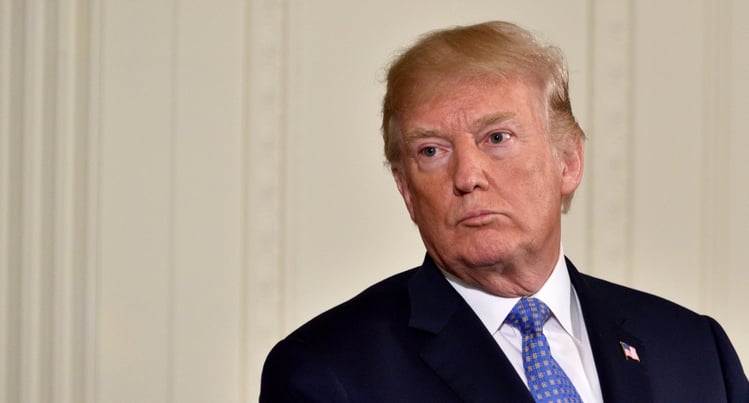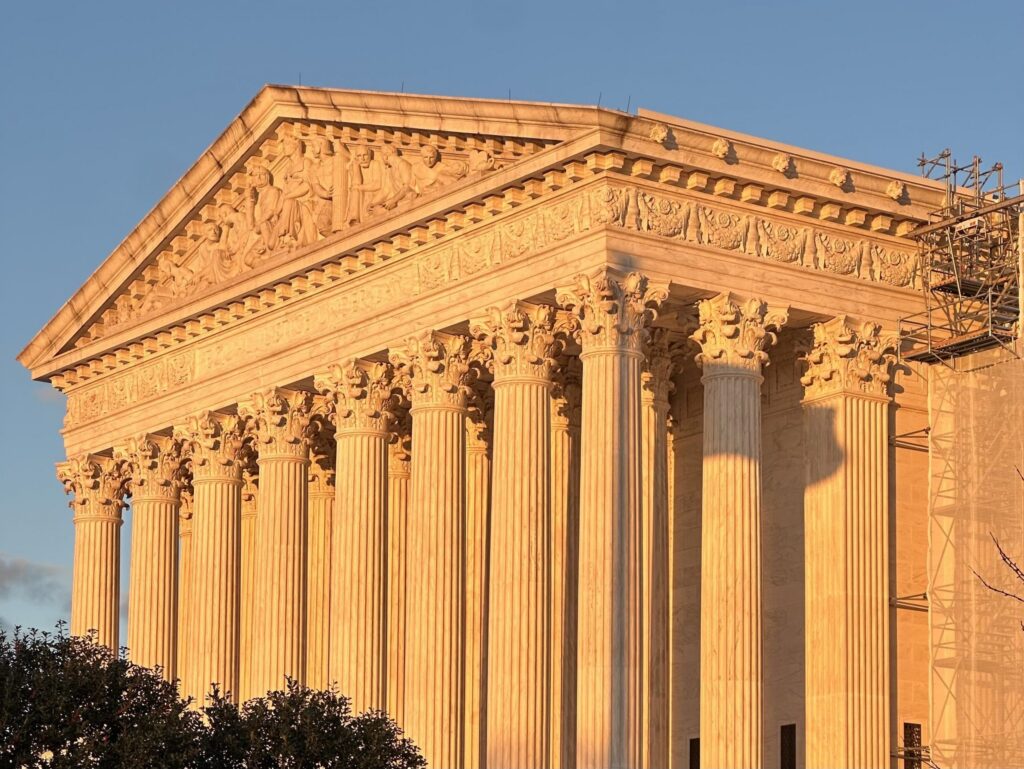
[ad_1]
Constitutional Law
Did DC Circuit ‘put an asterisk next to’ decision denying Trump immunity? Court keeps case on speedy path but implies limits
The prosecution of former President Donald Trump for trying to overturn the 2020 election could stay on a speedy path as a result of deadlines set Tuesday by the U.S. Court of Appeals for the District of Columbia Circuit. Photo from Shutterstock.
The prosecution of former President Donald Trump for trying to overturn the 2020 election could stay on a speedy path as a result of deadlines set Tuesday by the U.S. Court of Appeals for the District of Columbia Circuit.
The appeals court said Trump must file any request for a stay of its immunity decision with the U.S. Supreme Court by Feb. 12, report the Washington Post, CNN, Just Security and the New York Times.
If Trump instead seeks a hearing before the full appeals court, the case can still return to the trial judge after Feb. 12, the appeals court indicated.
The appeals court’s Feb. 6 opinion held that Trump’s alleged efforts to overturn the 2020 election were not part of his official duties, and he did not have immunity.
“We cannot accept former President Trump’s claim that a president has unbounded authority to commit crimes that would neutralize the most fundamental check on executive power—the recognition and implementation of election results,” the D.C. Circuit said. “Nor can we sanction his apparent contention that the executive has carte blanche to violate the rights of individual citizens to vote and to have their votes count.”
The appeals court concluded that the interest in criminal accountability outweighs the potential risks of chilling presidential actions. The D.C. Circuit cautioned, however, that its analysis “is specific to the case before us.” In the eighth footnote, the appeals court added, “We do not address policy considerations implicated in the prosecution of a sitting president or in a state prosecution of a president, sitting or former.”
A columnist for the Washington Post noted the “specific to the case” wording and concluded that the appeals court is “trying to put an asterisk next to its ruling. It is hinting—as the Supreme Court hinted in Bush v. Gore—that this is an extraordinary case and that in other cases, the same logic might not apply.”
The per curiam opinion was written by Judge Karen LeCraft Henderson, an appointee of former President George H.W. Bush, and two appointees of President Joe Biden, Judge J. Michelle Childs and Judge Florence Y. Pan. Biden had once considered Childs for a Supreme Court nomination.
If Trump asks the Supreme Court to hear the case, and the high court agrees, the Supreme Court could act quickly, or the justices could take their time, the New York Times reports.
One possibility is for the Supreme Court to grant the stay, with or without limitations. If there is no time limit, Trump would have 90 days to file a cert petition, according to Just Security. Or the Supreme Court could place a time limit on the stay, which would dissolve unless Trump files a cert petition within the time period.
Another possibility is for the Supreme Court to treat a stay application as a petition for certiorari and grant immediate review.
“We consider this a more likely option,” according to Just Security.
If the Supreme Court requires expedited briefing, oral arguments could be in March, and an opinion might be issued a month later, the blog said.
If Trump loses and a trial happens in July, it could conclude by October.
“Of course, it is within the Supreme Court’s power not to enforce an expedited appellate schedule,” Just Security pointed out. “If so, they could conceivably wait until the end of this year’s term in late June to issue its decision. Under that approach, the trial would not begin until approximately Oct. 1 and would not conclude until around Jan. 1, 2025.”
[ad_2]
Source link


